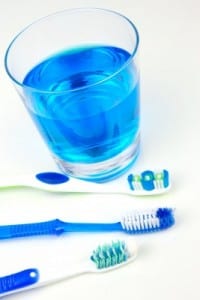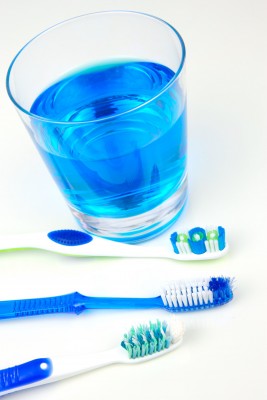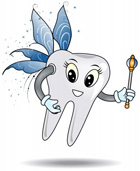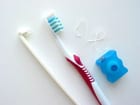 Patients who suffer from bad breath will go to all sorts of lengths to stop the condition from happening. It can really inhibit your social life and make things such as business meetings and job interviews into nightmare scenarios. One of the most obvious ways to rectify the problem is to use mouth wash to freshen the breath. The advertising states that mouth wash kills bacteria and freshens breath so it is a common method for people to use. But the story is not that simple.
Patients who suffer from bad breath will go to all sorts of lengths to stop the condition from happening. It can really inhibit your social life and make things such as business meetings and job interviews into nightmare scenarios. One of the most obvious ways to rectify the problem is to use mouth wash to freshen the breath. The advertising states that mouth wash kills bacteria and freshens breath so it is a common method for people to use. But the story is not that simple.
Mouth wash is taken into the mouth, swilled around, gargled with and then spat out. It does indeed kill bacteria but it kills all of the bacteria in the mouth, some of which is good bacteria. Mouth wash also makes the mouth very dry and, as a consequence, bad breath bacteria can thrive in these conditions because the surfaces of teeth are easier to ‘stick to’.
In the short term you breath might be freshened up by the flavour of the mouth wash but bad breath can quickly come back. Often people like to chew gum after using mouth wash because it moistens up the mouth quickly. This is not to say that mouth wash should always be avoided; sometimes dentists advise patients to use certain mouth washes on occasions because they can be helpful in the fight against gingivitis, the most basic form of gum disease. It is better to deal with the root causes of bad breath which might be found in the types of food that you are eating or the fact of having a dry mouth generally. Brushing properly and flossing too are effective general methods of combatting bad breath and brushing your tongue is also advisable because bad breath bacteria thrive on the tongue. Talk to a Leeds dentist for more handy hints.





 There has been a lot written about the effectiveness of mouth-washes. Generally, it errs on the side that they are an unnecessary luxury that can actually do more harm than good to some people. But everyone is different in Leeds and as we know from all walks of life, it’s a case of horses for courses, and to dismiss mouth-washes as unnecessary might extremely premature. Most of them contain alcohol and salts, which are proven to be an enemy of bacteria and anything that attacks bacteria, can only be good for the mouth. Mouth-washes tend to be herded into two categories, therapeutic and cosmetic. Therapeutic ones work to fight plaque and gum disease, with plaque, the wash will contain ingredients that are proven to help in the buildup and removal of plaque, and with gum disease, the wash will contain oils, even herbal ingredients, that help to soothe the gums and help regenerate them. Cosmetic mouth-washes help beat dry mouth and bad breath, moistening the mouth during the rinse and promote saliva levels in the mouth. Basic mouth-washes often contain some elements of fluoride, the one element that can put minerals back into the enamel of the teeth. As well as this, flushing your mouth after eating is also a healthy way of removing sticky foods, breaking them down as it goes. Mouth-washes- unnecessary?
There has been a lot written about the effectiveness of mouth-washes. Generally, it errs on the side that they are an unnecessary luxury that can actually do more harm than good to some people. But everyone is different in Leeds and as we know from all walks of life, it’s a case of horses for courses, and to dismiss mouth-washes as unnecessary might extremely premature. Most of them contain alcohol and salts, which are proven to be an enemy of bacteria and anything that attacks bacteria, can only be good for the mouth. Mouth-washes tend to be herded into two categories, therapeutic and cosmetic. Therapeutic ones work to fight plaque and gum disease, with plaque, the wash will contain ingredients that are proven to help in the buildup and removal of plaque, and with gum disease, the wash will contain oils, even herbal ingredients, that help to soothe the gums and help regenerate them. Cosmetic mouth-washes help beat dry mouth and bad breath, moistening the mouth during the rinse and promote saliva levels in the mouth. Basic mouth-washes often contain some elements of fluoride, the one element that can put minerals back into the enamel of the teeth. As well as this, flushing your mouth after eating is also a healthy way of removing sticky foods, breaking them down as it goes. Mouth-washes- unnecessary? On your shopping list when you visit the super market or the corner store will probably be tooth paste containing fluoride, a new tooth brush if your current one is not fit for purpose and some dental floss. But many people wonder about whether to pick up some mouth wash too. The adverts tell us that mouth wash kills bacteria and freshens breath but is it worth our while to use it?
On your shopping list when you visit the super market or the corner store will probably be tooth paste containing fluoride, a new tooth brush if your current one is not fit for purpose and some dental floss. But many people wonder about whether to pick up some mouth wash too. The adverts tell us that mouth wash kills bacteria and freshens breath but is it worth our while to use it? As part of taking care of your teeth, some people turn to mouth washes. But the picture is not that clear as to how beneficial they actually are. If you want some answers about mouth washes and whether they are the best choice for you then you should read on.
As part of taking care of your teeth, some people turn to mouth washes. But the picture is not that clear as to how beneficial they actually are. If you want some answers about mouth washes and whether they are the best choice for you then you should read on. Bad breath is something that most people will probably do their best to avoid. It can make it very socially difficult knowing that there are unpleasant smells emitting from your mouth because of bacteria. These bacteria hang around from the food you eat and are usually removed by brushing alone but some people find that that is not enough.
Bad breath is something that most people will probably do their best to avoid. It can make it very socially difficult knowing that there are unpleasant smells emitting from your mouth because of bacteria. These bacteria hang around from the food you eat and are usually removed by brushing alone but some people find that that is not enough. Many people’s answer to dealing with bad breath is to reach for the nearest bottle of mouthwash and have a gargle but is this the best solution to treating halitosis? It would seem that the answer is no. Indeed in the United States, after rigorous testing in the 1970s by the Food and Drug administration, mouthwash products are no longer allowed by law to claim that their products stop bad breath.
Many people’s answer to dealing with bad breath is to reach for the nearest bottle of mouthwash and have a gargle but is this the best solution to treating halitosis? It would seem that the answer is no. Indeed in the United States, after rigorous testing in the 1970s by the Food and Drug administration, mouthwash products are no longer allowed by law to claim that their products stop bad breath. Everyone wants to have fresh breath, but the chances are that all of us, at one time or another, has suffered form bad breath. You’ve all seen the adverts on TV promising minty fresh breath all day and all night by using certain gum or mouthwash products but the reality is slightly different. Although these products will mask the smell of bad breath, they don’t prevent the causes of it, and more than likely you will notice it coming back. The only real weapon against bad breath is to take preventative measures. This almost always involves maintaining good standards of oral hygiene.
Everyone wants to have fresh breath, but the chances are that all of us, at one time or another, has suffered form bad breath. You’ve all seen the adverts on TV promising minty fresh breath all day and all night by using certain gum or mouthwash products but the reality is slightly different. Although these products will mask the smell of bad breath, they don’t prevent the causes of it, and more than likely you will notice it coming back. The only real weapon against bad breath is to take preventative measures. This almost always involves maintaining good standards of oral hygiene.

